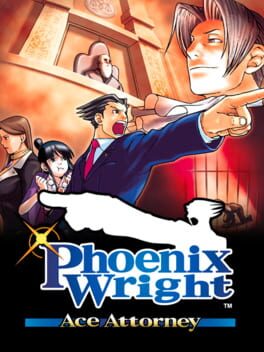This review contains spoilers
This is a functional story that, while simplistic, is able to achieve what its story beats set out to do. The notably engaging dialogue in this entry in particular, as well as as the continually expressive animations are a notable aspect of how the series developed its cult following from the start.
It’s unfortunately underdeveloped when it comes to certain specific elements of character work and gameplay structure. For the former aspect, in comparison to his other titular contemporaries Phoenix himself is much more inconsistently portrayed as a rookie character who is only really hindered by his confidence at the game’s convenience, Mia and Maya’s story roles are arguably at their most dull and artificial, and at least the original JP release of this game has Edgeworth betray his mentor and then afterward not offer any glimpse of reflection about what he thinks about this action before he leaves the game entirely.
On the latter point, the investigations in this game don’t generally have a good sense of game design, with Turnabout Samurai being the major culprit in convincing many potential series enjoyers to drop the series entirely, and that’s not for no reason. Perhaps it’s not the best decision to have players travel from one end of the map to the other multiple times for very little reason, while they have to individually select the locations where they want to move. Outside of that, the game’s cross-examinations in the latter half of the game every so often have some sort of notably odd sticking point, even for the series in general, in a way that doesn’t feel conducive to its difficulty curve.
Essentially, it’s a fun time aside from when it’s not, which is just a bit too frequent for my liking.
It’s unfortunately underdeveloped when it comes to certain specific elements of character work and gameplay structure. For the former aspect, in comparison to his other titular contemporaries Phoenix himself is much more inconsistently portrayed as a rookie character who is only really hindered by his confidence at the game’s convenience, Mia and Maya’s story roles are arguably at their most dull and artificial, and at least the original JP release of this game has Edgeworth betray his mentor and then afterward not offer any glimpse of reflection about what he thinks about this action before he leaves the game entirely.
On the latter point, the investigations in this game don’t generally have a good sense of game design, with Turnabout Samurai being the major culprit in convincing many potential series enjoyers to drop the series entirely, and that’s not for no reason. Perhaps it’s not the best decision to have players travel from one end of the map to the other multiple times for very little reason, while they have to individually select the locations where they want to move. Outside of that, the game’s cross-examinations in the latter half of the game every so often have some sort of notably odd sticking point, even for the series in general, in a way that doesn’t feel conducive to its difficulty curve.
Essentially, it’s a fun time aside from when it’s not, which is just a bit too frequent for my liking.
